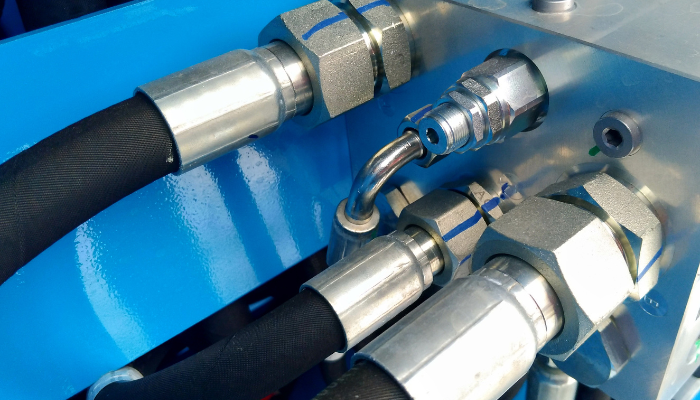The shift towards sustainability in all industrial and manufacturing sectors has been inexorable, with the fluid power industry being no exception. As climate change continues to make headlines and natural resources become increasingly scarce, engineers are being challenged to rethink traditional fluid power design approaches and find more environmentally sustainable solutions.
Hydraulic systems have been used for decades in construction plant, agricultural machinery, and transportation, using compressed fluid to transmit power and control movement. However, one of the main concerns with many conventional hydraulic systems from a sustainability perspective is their reliance on non-renewable energy sources. Most hydraulic machines use fossil fuels to power the pump that drives the fluid, contributing to greenhouse gas emissions. Additionally, hydraulic leaks and spills can sometimes pollute soil and water resources, affecting animal and plant life.

Sustainable Solutions In Hydraulic Engineering
The good news is that there are several ways to make hydraulic systems more sustainable. One approach is to incorporate alternative energy sources into the system. Renewable energy such as solar powered rechargeable batteries can be used to supplement or even replace traditional fossil fuel energy sources in some stationary plant and mobile applications – not only reducing emissions but also decreasing operating costs in the long run.
Another solution is to improve the efficiency of fluid power systems through design modifications and better optimised components. By designing components and cylinders specifically to reduce fluid leakage, and optimising pump and valve designs for energy conservation, less energy is required to operate the system, providing cost savings and a smaller carbon footprint.
Fluid Power Systems In Sustainable Plant And Machinery
While there is no getting away from the potential impact of hydraulic systems on the environment, fluid power systems also have a crucial role to play in sustainable engineering. For instance, hydraulic and pneumatic technology is already widely used in renewable energy installations such as wind turbines, as well as powering the braking and steering systems of hybrid and electric vehicles (EVs).
On a larger scale, hydraulic systems can also support the development of environmentally friendly infrastructure by efficiently lifting and moving heavy loads during construction and civil engineering projects. This reduces the dependence of project on fuel intensive machinery and can also decrease project duration, resulting in lower emissions. In the coming years, this could become an essential consideration for construction projects in Ultra Low Emission Zones, in London and other large cities.
What Next?
As the UK moves steadily towards a more sustainable future, it’s crucial for the fluid power industry to adapt and play its part in reducing its environmental impact. With high quality products and components now available, and a growing emphasis on sustainable design, there are plenty of opportunities for engineers to design innovative hydraulic and pneumatic systems that are more productive, profitable, and eco-friendly. To find out more about our range of advanced fluid power components, please contact one of our experienced team by clicking here.
Image source: Canva


